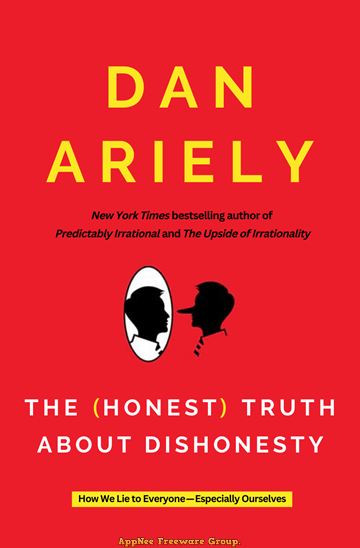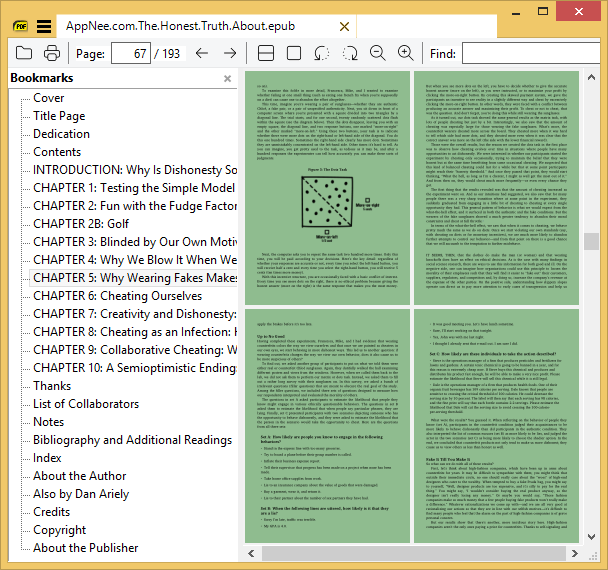
Does the likelihood of being discovered influence our propensity to cheat? In what ways do companies facilitate dishonest practices? Does working together make us more honest or less so? Can religion enhance our integrity?....
While most of us consider ourselves to be honest, the reality is that we all engage in dishonesty. From the halls of power to the corporate sector, and from classrooms to workplaces, unethical behavior is pervasive. None of us is exempt from this, whether it's telling a small lie to avoid trouble or inflating our expense claims.
In The (Honest) Truth About Dishonesty, the author examines why some lies are easier to tell than others, how the chances of getting caught matter less than we believe when it comes to cheating, and how certain business practices can inadvertently or intentionally encourage unethical conduct.
This book delves into the complex nature of dishonesty and the psychological mechanisms that drive humans to cheat and lie. Through a series of engaging experiments and research, the author reveals that dishonesty is not just a moral failing but is influenced by a myriad of contextual factors and cognitive biases. For instance, he uncovers that people are more likely to cheat when they can rationalize their actions, such as when they perceive that the act of dishonesty does not significantly harm others or when they are distanced from the consequences of their actions.
The author also emphasizes the role of societal norms and cues in shaping our behavior. He points out that environments with lower perceived integrity can foster a culture of dishonesty, leading individuals to follow suit. Interestingly, he describes how even small infractions, like inflating expense reports, can propagate a slippery slope toward more severe unethical behaviors.
Throughout the book, the author combines insightful anecdotes with empirical data, elucidating why even fundamentally honest individuals can find themselves crossing moral boundaries. Ultimately, he advocates for creating systems and environments that reduce the opportunities for dishonesty, promoting greater integrity in both personal and professional realms.
In summary, The (Honest) Truth About Dishonesty not only challenges our assumptions about morality, but also invites readers to reflect on their own ethical decision-making processes. It serves as a crucial reminder of the inherent complexities of human behavior, urging us to consider the intricate interplay between circumstances and our moral compass in times of temptation.

Table Of Contents
- CHAPTER 1: Testing the Simple Model of Rational Crime (SMORC)
- CHAPTER 2: Fun with the Fudge Factor
- CHAPTER 2B: Golf
- CHAPTER 3: Blinded by Our Own Motivations
- CHAPTER 4: Why We Blow It When We’re Tired
- CHAPTER 5: Why Wearing Fakes Makes Us Cheat More
- CHAPTER 6: Cheating Ourselves
- CHAPTER 7: Creativity and Dishonesty: We Are All Storytellers
- CHAPTER 8: Cheating as an Infection: How We Catch the Dishonesty Germ
- CHAPTER 9: Collaborative Cheating: Why Two Heads Aren’t Necessarily Better than One
- CHAPTER 10: A Semioptimistic Ending: People Don’t Cheat Enough!
Download URLs
| Format | Download | Size |
| EPUB |  |
1.41 MB |
| PDF (converted) |  |
2.30 MB |
| AZW3 |  |
1.41 MB |